Ollie Robinson likes to stay busy.
That’s why he gets up at 2:30 a.m. five days a week for the early morning shift in the kitchen at Corewell Health Butterworth Hospital.
He wraps up his work by early afternoon, leaving time for feeding the birds and squirrels, fixing stuff around the house or hanging with his kids or his dozens of grandchildren, great-grandchildren and great-great-grandchildren. And he might find time for a nap.
Until the clock strikes 9:30 p.m. or so, which is when he sets the alarm and then does it all over again.
For 60 years—60!—Robinson has been stuffing chicken breasts, prepping soups and mixing up macaroni and cheese for the patients and team members at Butterworth Hospital. And at 84, he’s not planning to hang up his apron anytime soon.
“Every year, I say this year is my last year,” he chuckled. “But a lot of my friends who are retired seem like they are bored. They go to malls and walk around in a circle.”
That’s not Robinson.
“I want to fill the day in and then get to the next day,” he said. “I would tell anybody that you have to stay active. You can’t just sit down.”
As far as the human resources team at Corewell Health West can tell, Robinson has been a full-time employee longer than anyone else. Ever. So long, in fact, that there was no anniversary card to reflect the milestone. They had to make a new one.
During one of his recent morning shifts, a handful of Corewell Health executives stopped by the kitchen to surprise Robinson with doughnuts, punch and plenty of kudos. They estimated that he has helped make about 4.5 million meals for employees, patients and visitors.
“We are so glad you have been with us for 60 years,” said Tina Freese Decker, Corewell Health President & CEO, as she presented him with a Corewell Health vest and a new chef’s coat. “You are part of our story and part of our family.”
When Robinson first set foot in the Butterworth Hospital kitchen, microwave ovens and office computers were new technology, she pointed out. Butterworth Hospital had recently performed its first open-heart surgery and Congress was debating the merits of a new program called Medicare.
Robinson, who admitted to being “a bit overwhelmed” with all the attention, also received a framed word cloud that featured many of the sentiments his coworkers use to describe him: mentor, humble, inspiring, dedicated.
“He puts his heart and soul into his job every day because he understands the value of the food he is preparing and who is receiving it,” said Kevin Vos, vice president of environmental services at Corewell Health West.
Vos wasn’t even alive when Robinson worked his first shift on Dec. 13, 1962.
Back then, there were about 14 cooks, 1,000 team members and 300 to 500 inpatients at Butterworth Hospital each day. By contrast, Butterworth Hospital now has at least 50 culinary professionals preparing breakfast, lunch and dinner for, on average, 900 inpatients daily.
Along with the growth of the hospital and adjacent buildings, the workforce also has expanded substantially, to about 6,000 people on any given day, although there is also a nearby food court and other dining options.
“I’ve watched this place transform so much over the years,” Robinson said.
Years ago, staff in the kitchen peeled potatoes and carrots by hand, baked cakes and cookies from scratch and cut bacon from giant slabs. Vendors delivered crates of raw vegetables, eggs and other whole foods. Everything was made from scratch.
“We used to lay out our own hamburger patties. They didn’t have businesses like Gordon Food Service delivering prepared foods,” he said.
Ten years into his tenure, Robinson was tapped to take over as head chef, a role he held until 2002.
As the years sped by, he began to realize the job was about a whole lot more than his renowned macaroni and cheese.
“In the old kitchen I could look out the windows and see the morgue. As I grew into this job, I started to wonder, ‘How was this person’s last meal? How did we treat them here?’” he said.
Then his daughter, Kimberly, one of five children, died of a brain hemorrhage in 2010.
“The sky sorta fell in,” he said. But it also helped him better empathize with patients, visitors and care providers.
“It was hard watching them take her off life support. She was 52. But now whenever I hear ‘Code Blue’ or ‘We need a bereavement basket,’ I know exactly what those people are going through,” he said.
So Robinson keeps at it, donning his black skull cap and chef’s coat most weekday mornings and every other weekend. He still enjoys the energy of the kitchen and the friendships he has made along the way.
“I guess I’m just a workaholic,” he said, acknowledging that he trained and, for decades, worked alongside quite a few people who are now retired. “If you keep working, you don’t realize the concept of age. You never miss a beat.”
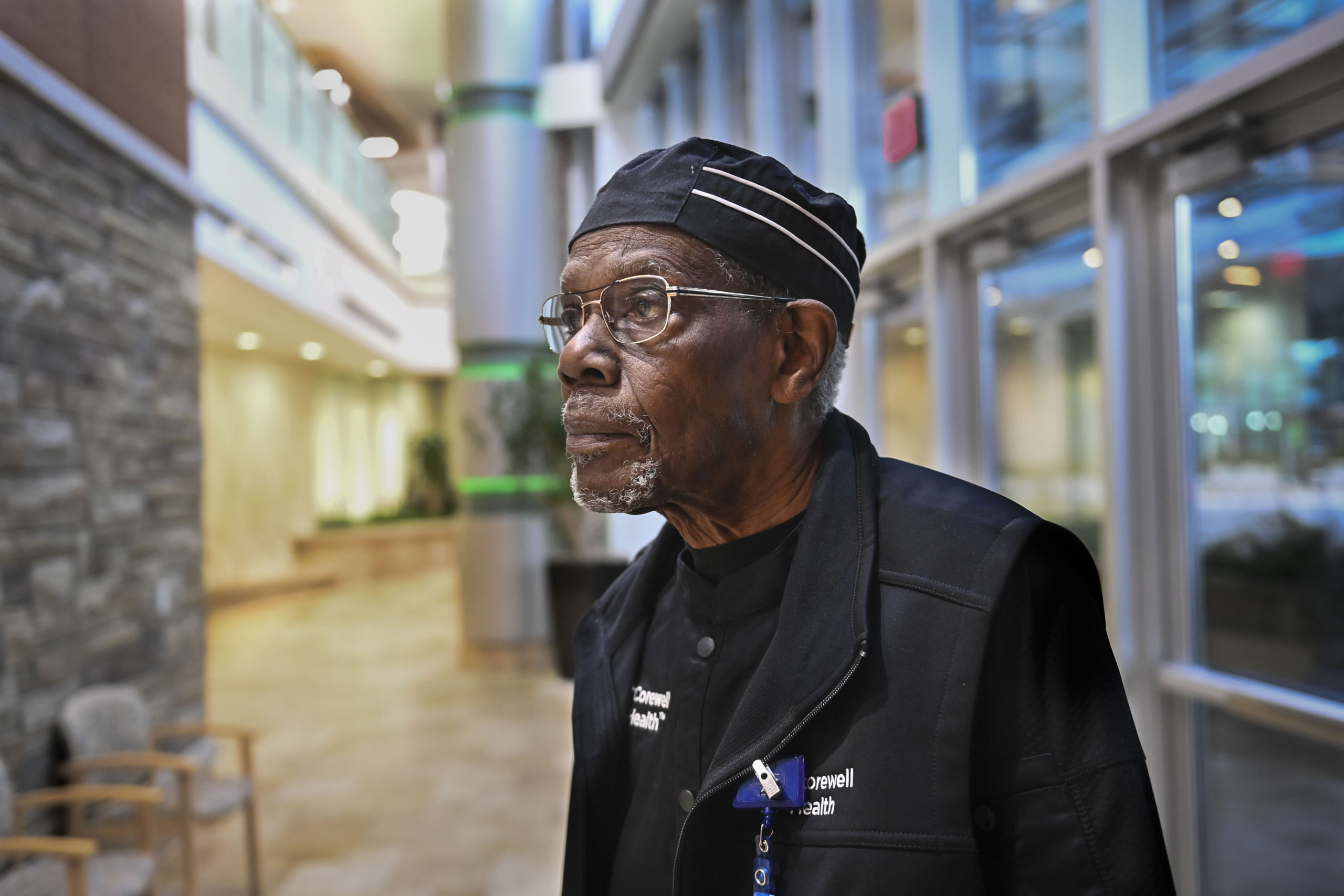
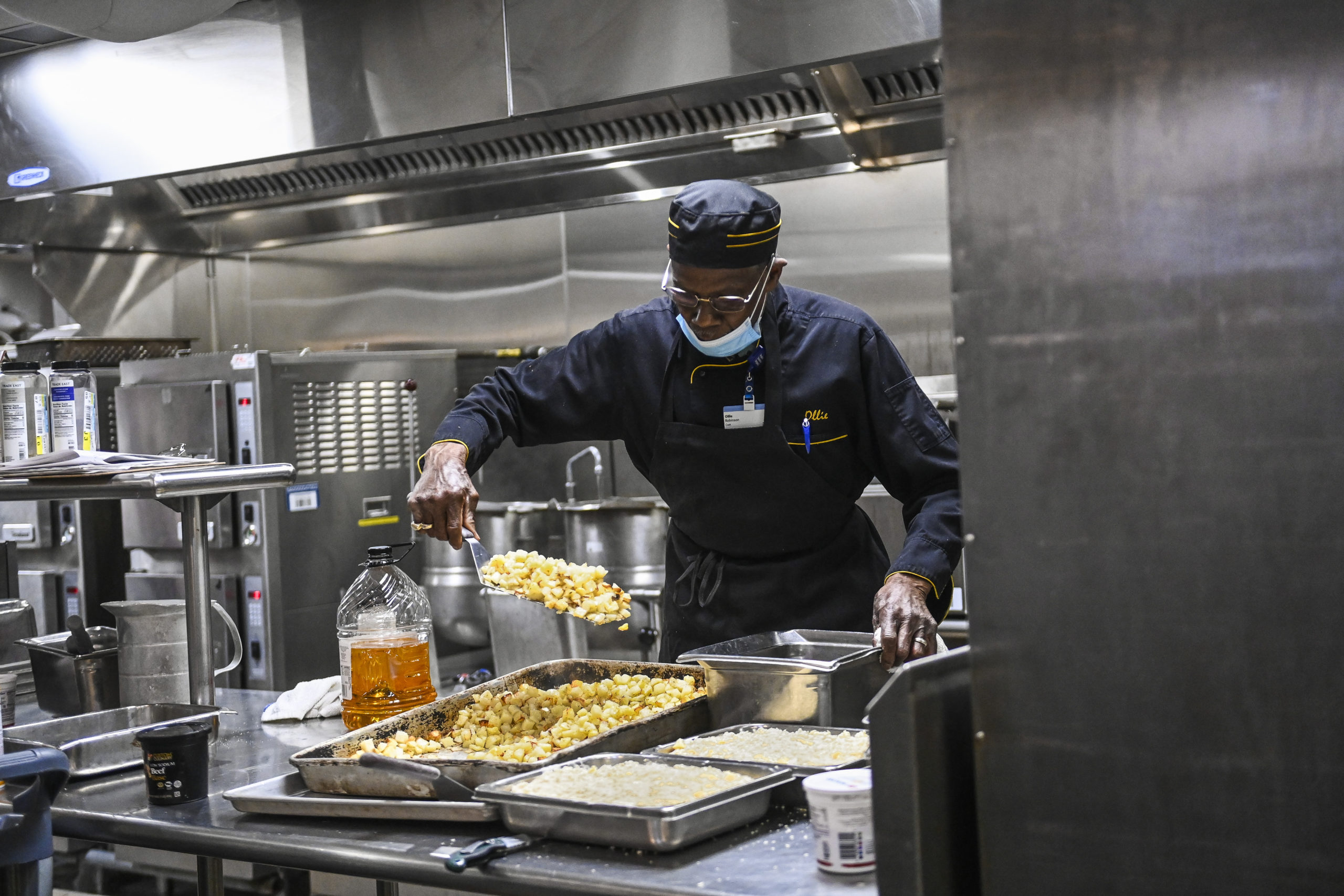
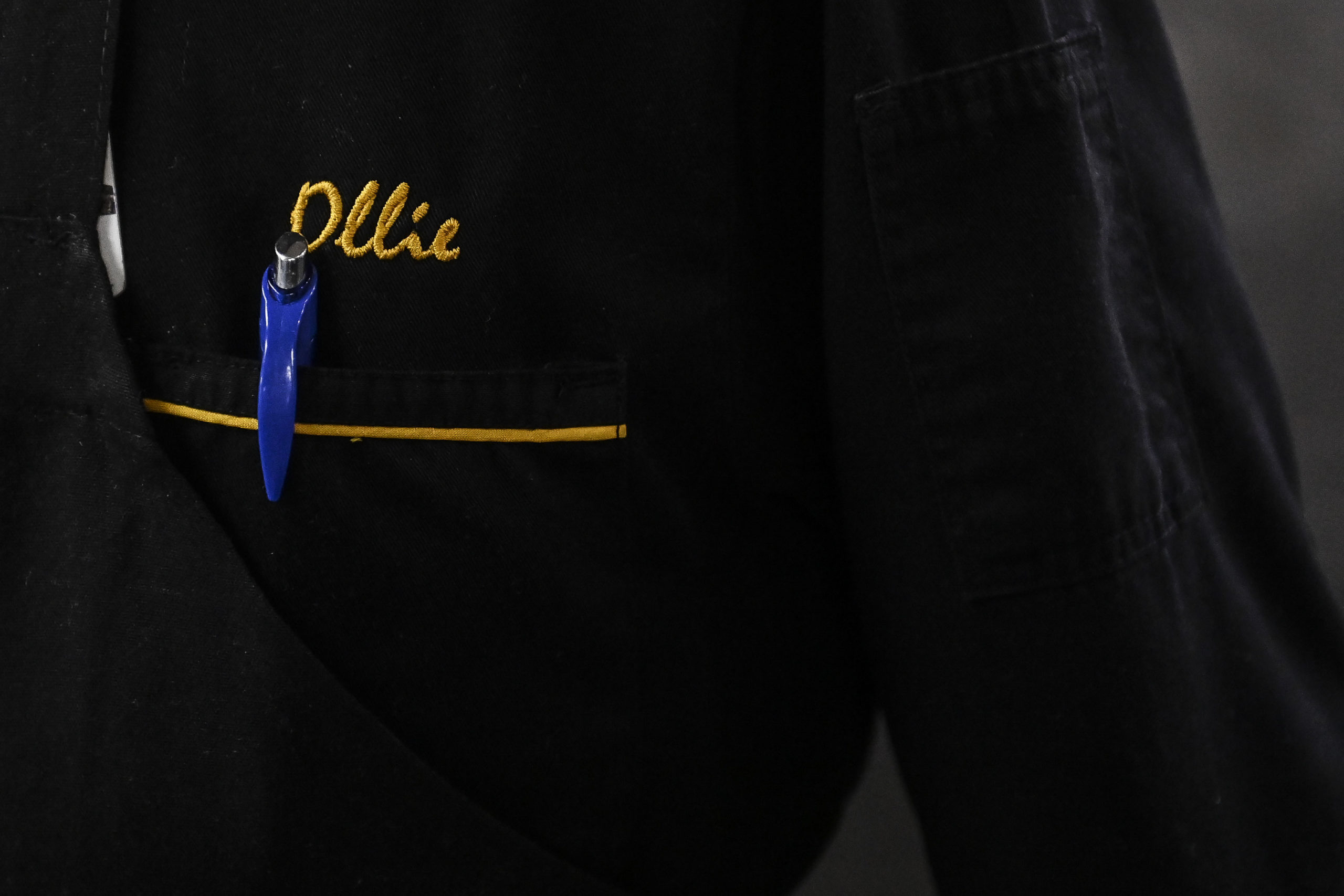
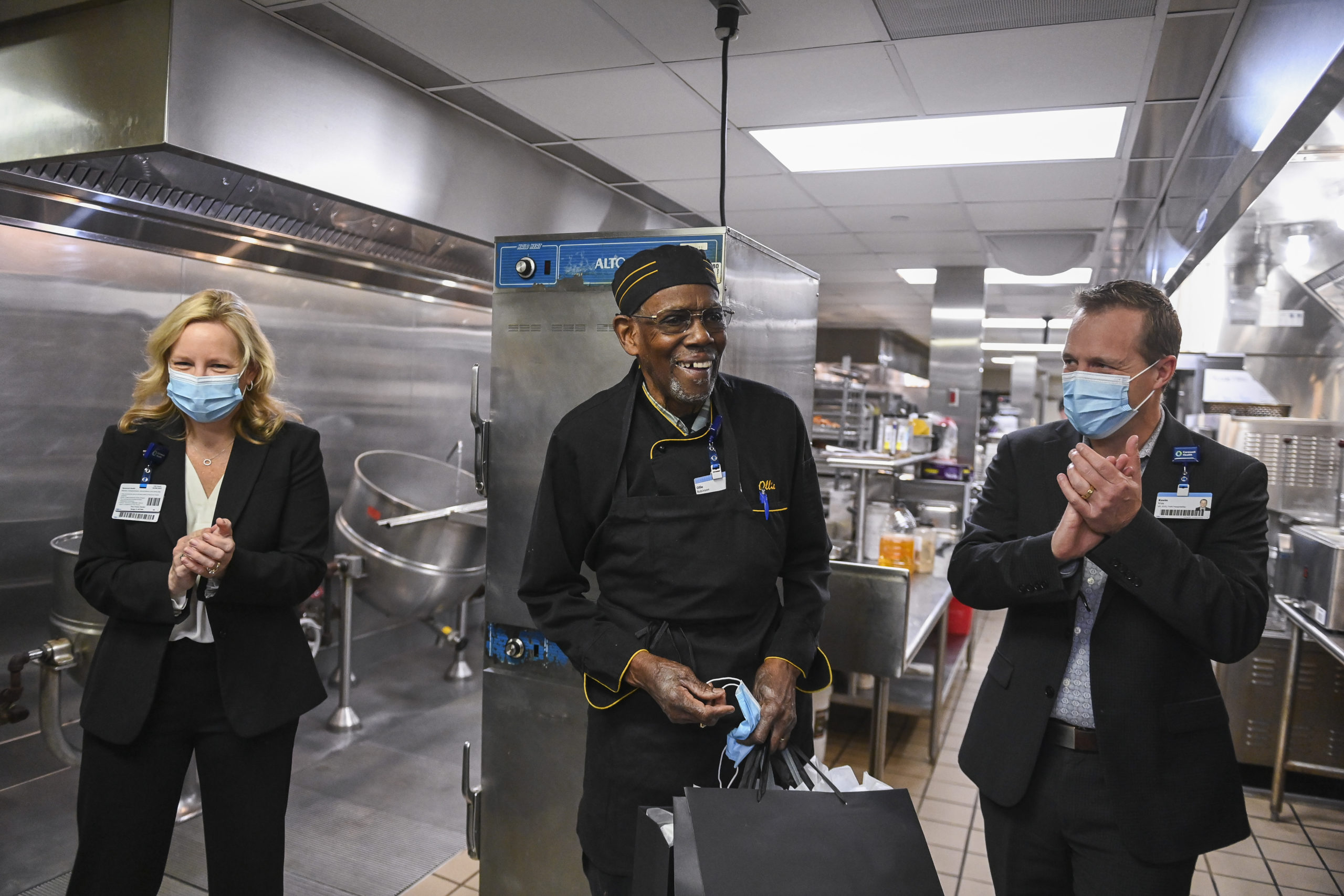
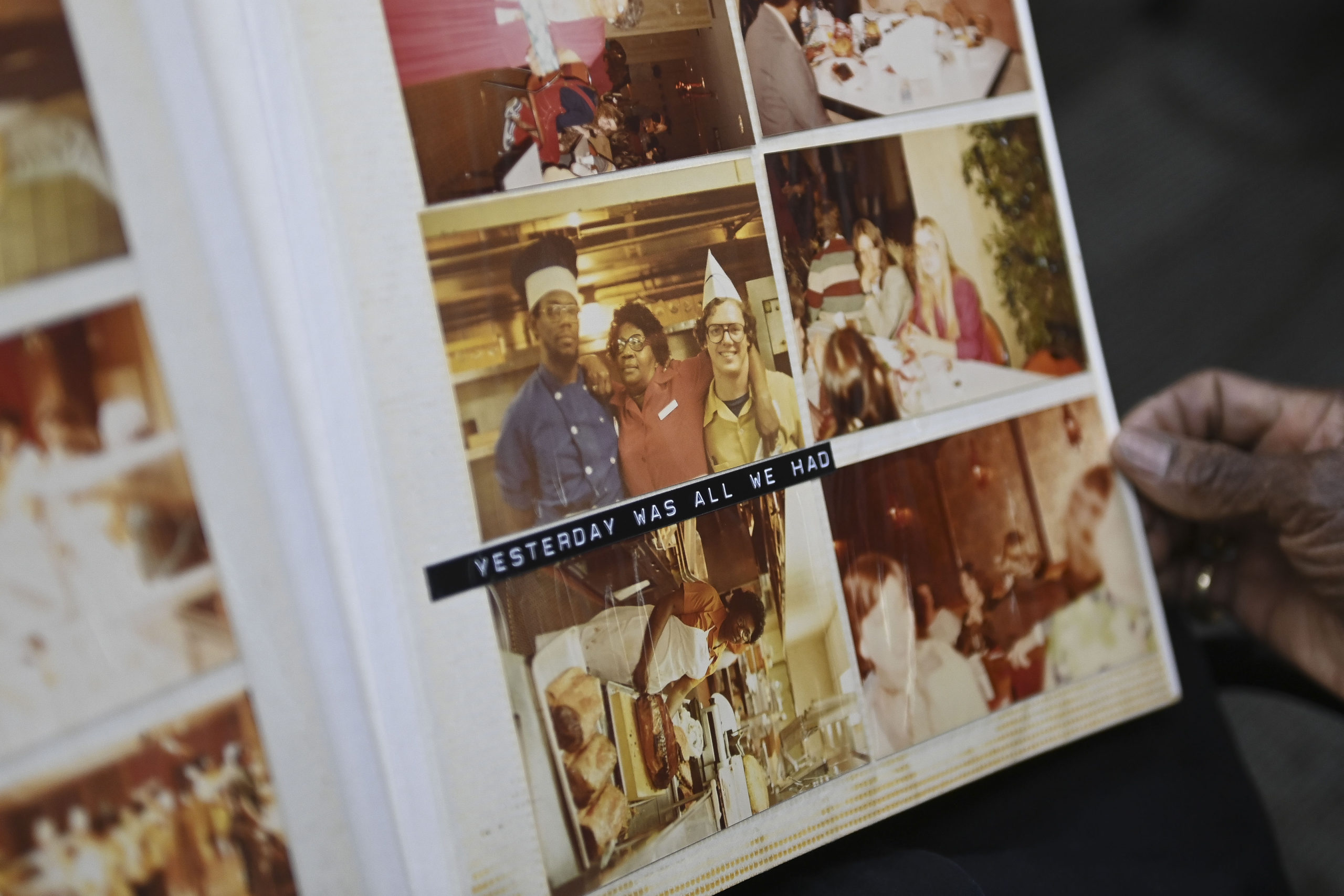
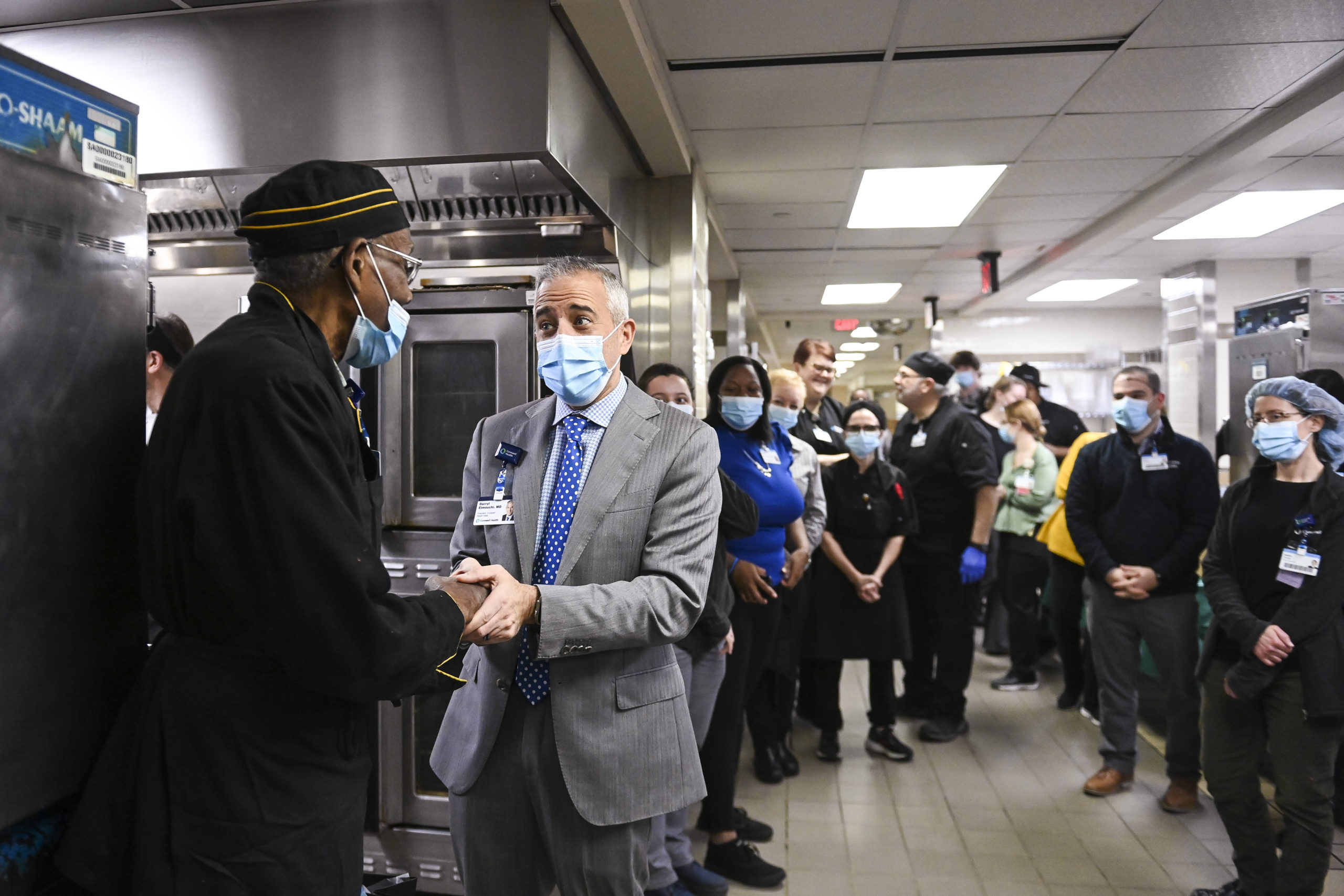

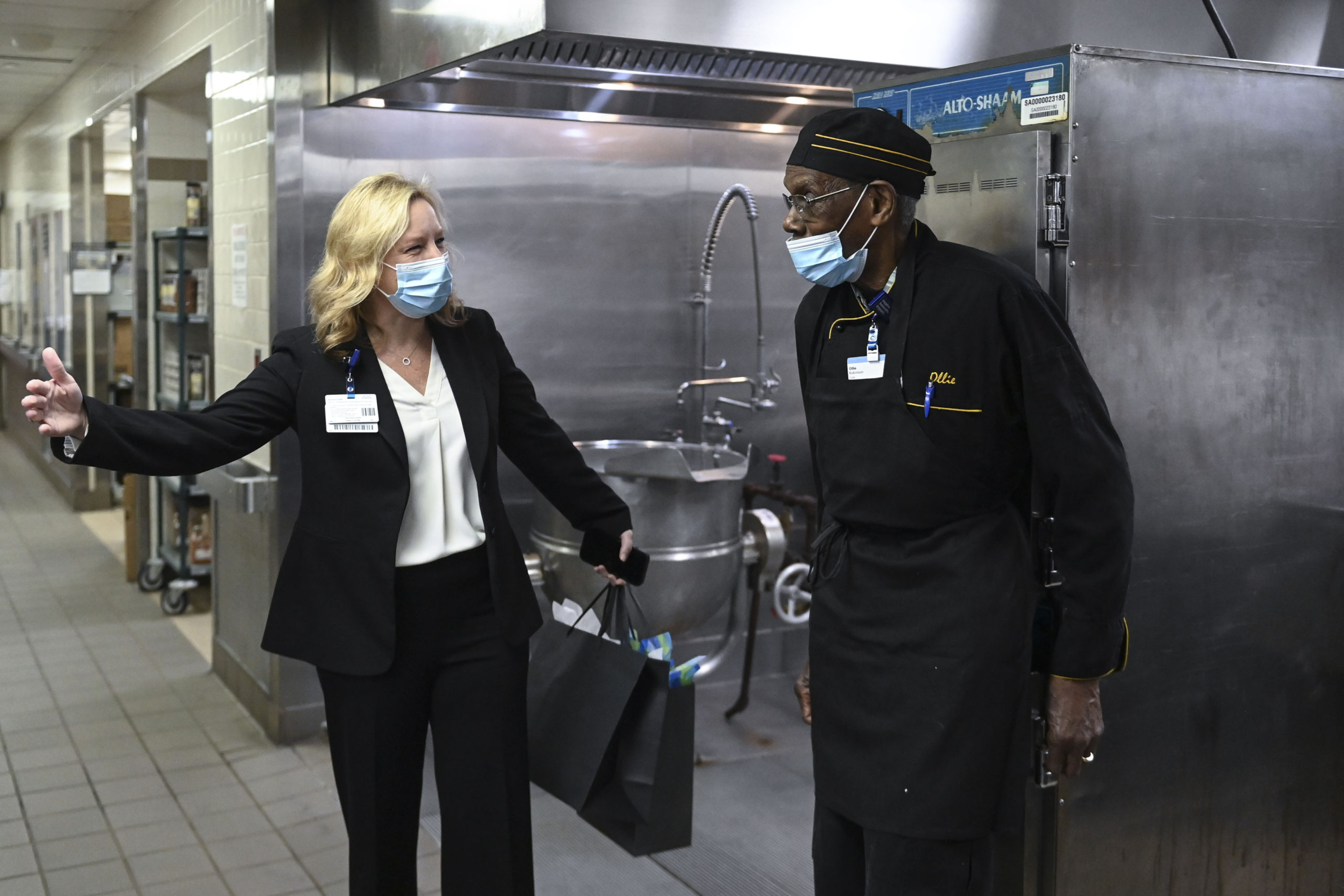
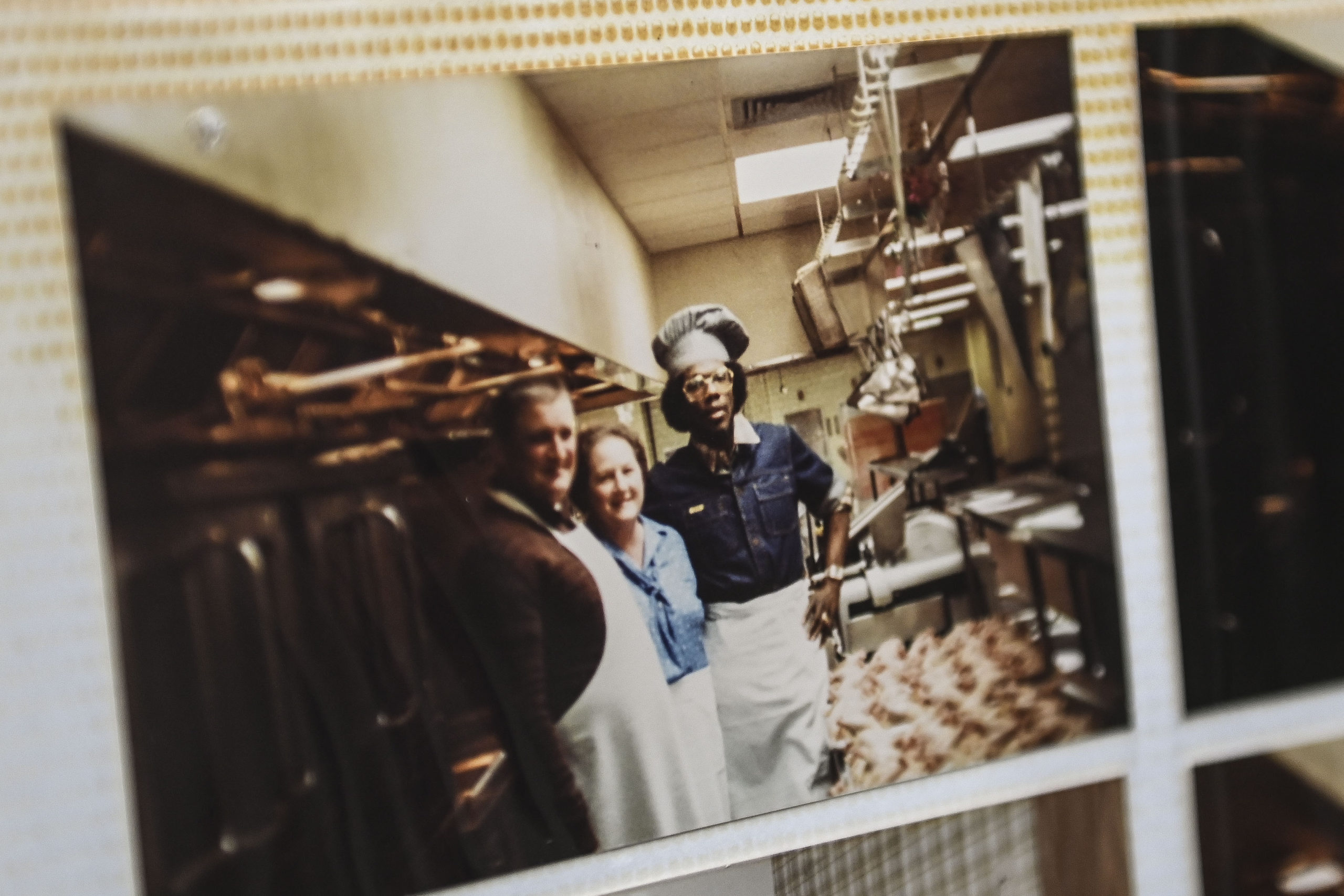
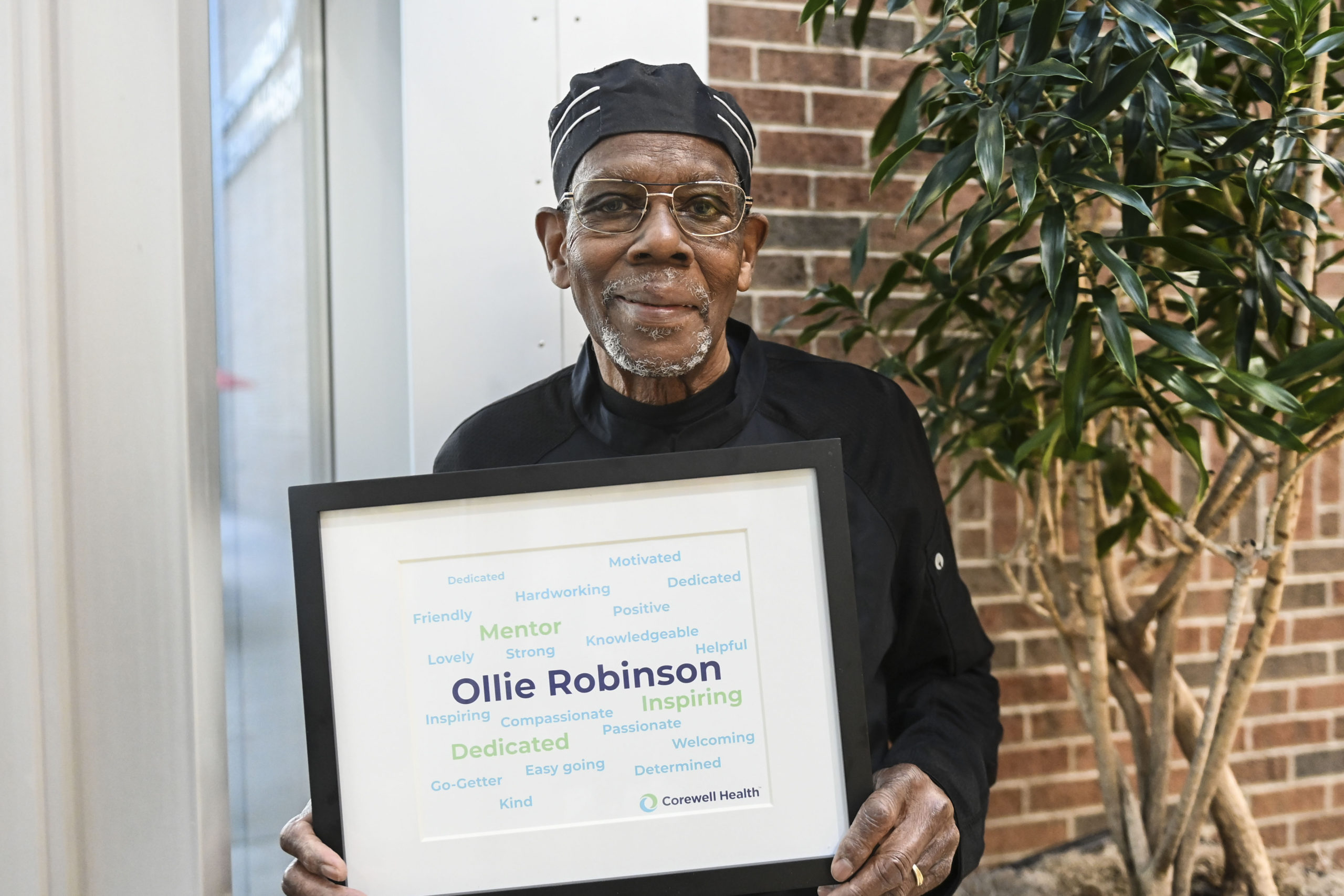


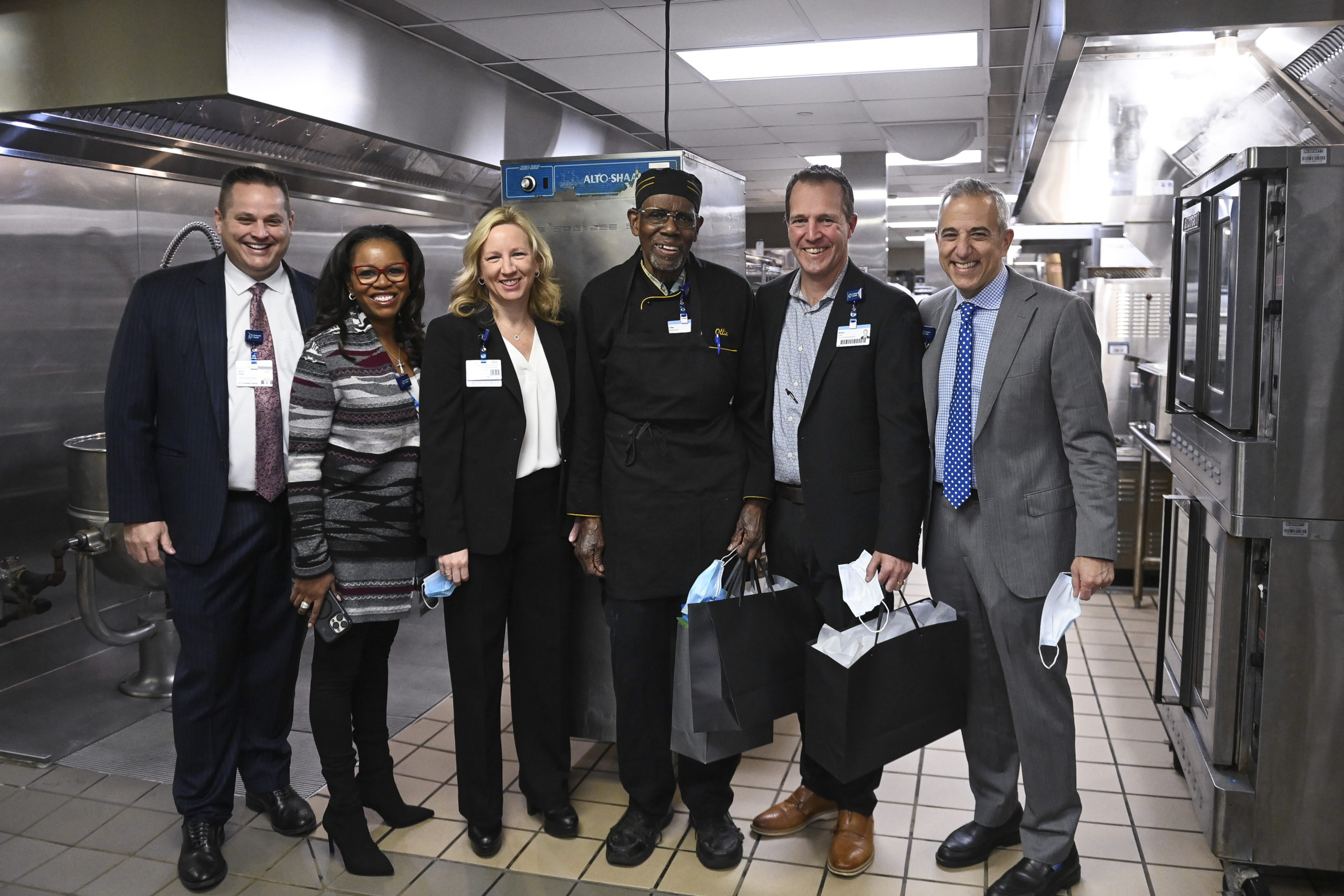
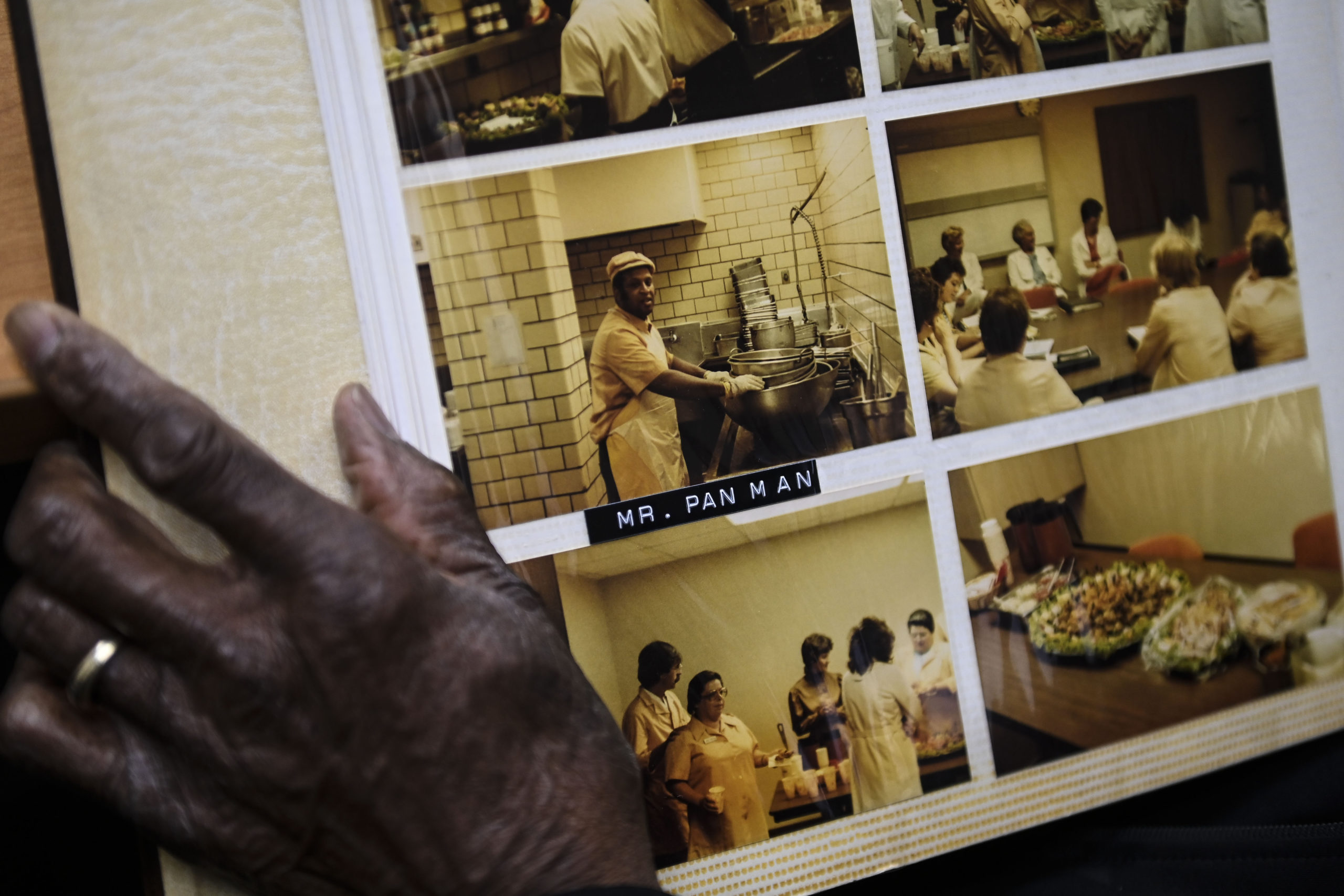


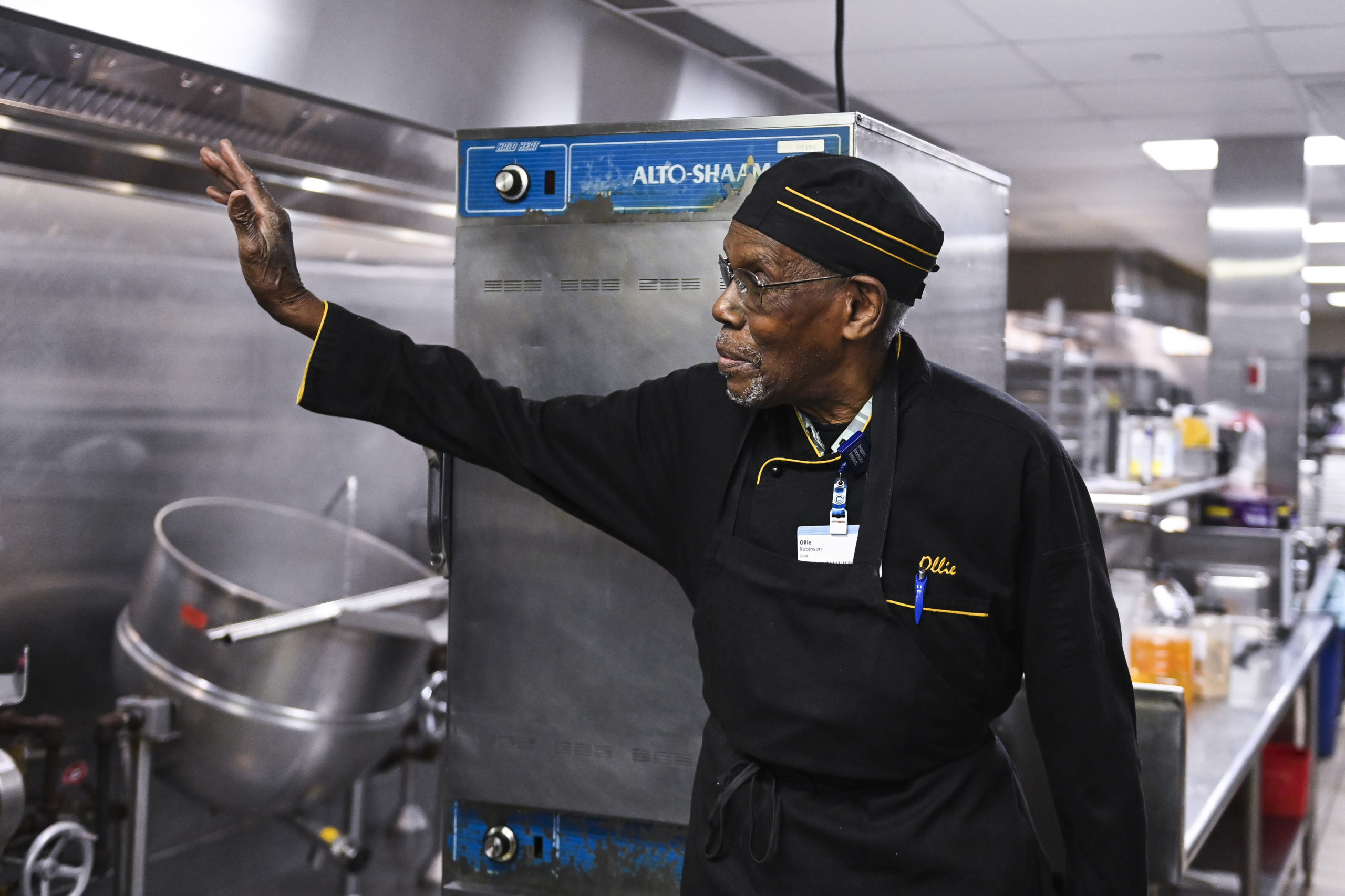
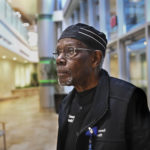
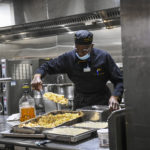

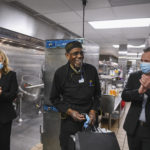

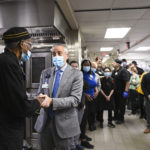
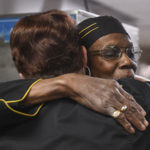










 /a>
/a>
 /a>
/a>
 /a>
/a>
What a great story and a great man! Was at Corewell Health recently and ALL the staff were just spectacular. The doctors Merhii and Luang phenomenal! Also our nurse tech Fro was just a delight. We loved him and his positive energy!
What an awesome man. We should all have his work ethic and joy for living.
You are a very special person. Keep up the good work and enjoy everyday. ❤️
Ollie was also well known for his fried chicken! All the staff loved it. I have known Ollie since 1969. In fact he and I were on the Butterworth bowling team together. It was a great way for me as a nurse to meet people from other departments and develop friendships. Congratulations Ollie! You are one special friend.
What a legacy and testimony he is to the rest of us!
Thank you for your years of dedicated service to all!
I was so glad to see you did this story! I worked with Ollie for several years, and a year as a Cook on his team! I have a lot of great memories and learned so much from him. I have a ton of respect for Ollie, and I am glad to see he is still at it!
“If you keep working, you don’t realize the concept of age. You never miss a beat.” – Ollie Robinson
Well said! I love this story!!!
Any employee that works with you is having an amazing day!
Hey Ollie,
I’m 84 too. I’m retired, keeping myself fit, play in two bands, took up painting, story writing, camping, cooking.
If we had worked together we’d have run circles around a lot of younger folks. You’re an inspiration!
Congrats Ollie! You truly are an inspiration, it’s obvious you love what you do. Thank you for your service!
What a thrill to see this wonderful article about Ollie. I worked in the Department in the 70’s and can still picture him leaning over large steam kettles with a big smile. So kind in giving helpful instructions to others. What an inspiration
Thank you Ollie ! You inspire me, thank you for sharing your story
Nobody can make fried chicken like Ollie. When we saw this in the serving line our day was made. Hugs and Thank You for your dedication to Butterworth staff!
Way to go Ollie!! I wish everyone could read your story and inspire more people to work. There are so many people out there that don’t want to work and here you are at 84 still going strong. I wish you the best!!
Congratulations Young Man, you are a true mentor.
What a great story! I have been a part of Butterworth Hosp/ Spectrum Health/Corewell health since 1975. Ollie you are amazing! Let’s celebrate your 100th year doing what you love. KEEP UP THE GREAT WORK.
We are so blessed to have you at the helm! Thank you for your dedicated service and CONGRATULATIONS!
Your story and personal insights were an enjoyable read. For me, it is persons like yourself that make the world go around. May your health match the wellness of your attitude for many more years to come.